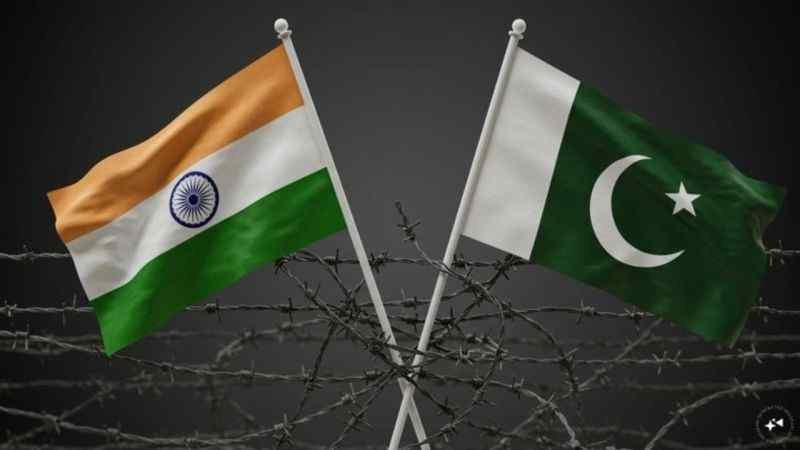A classified diplomatic cable from India’s mission in Geneva has surfaced online, laying bare a covert strategy to influence global conversations on Kashmir. The document, dated September 2, 2023, was leaked by the hacktivist collective Anon Eagle and has since sparked debate over India’s use of cyber statecraft in multilateral forums.
Inside the Cable: Narrative Management by Design
The cable details a five-hour closed-door meeting between Indian officials and UN Human Rights Council (UNHRC) “nodes” in Geneva, ahead of the September 2023 session. Labeled TOP SECRET, the communication frames Kashmir not only as a diplomatic issue but as a matter of “narrative shaping.”
According to the directives, India sought to:
- Prime local narratives in Azad Kashmir districts (referred to as “POK” in the document) by gathering citizen grievances, testimonies, and timestamped visuals for use at Geneva.
- Stage coordinated street actions timed with UNHRC meetings, supported by NGO endorsements and press interventions.
- Channel funding strategically, steering resources away from Pashtun Tahafuz Movement (PTM) activities in Europe and towards Kashmir-related advocacy.
- Build alliances with Sindhi, Baloch, and Pashtun groups, though without overt branding to avoid direct association.
- Maintain strict operational security, including the use of community welfare covers, phone quarantines, and after-dark small-group movements to avoid detection.
Success was to be measured in numbers: rally headcounts, press mentions, NGO participation, and proof of activity along Geneva’s diplomatic corridors.
The Hack Behind the Leak
The document’s release is attributed to Anon Eagle, a hacktivist group that emerged in 2025 and is widely suspected of links to Pakistan. Cybersecurity analysts say the group exploited vulnerabilities in India’s secure cable system and then distributed the file through dark web forums and social media.
Anon Eagle’s tactics resemble those of older groups like Anonymous, with a reliance on SQL injection and phishing. They’ve previously breached Indian government systems, including the Election Commission in 2023. This time, the group framed the leak as proof of India’s “manipulative tactics” to sideline Kashmiri voices at the UNHRC.
A Broader Cyber Cold War
The timing of the breach is significant. It comes just months after the April 2025 Pahalgam terror attack, which killed 26 civilians and reignited India-Pakistan tensions. Both sides have since engaged in tit-for-tat cyber offensives. Pakistani hackers claimed to compromise Indian defense systems in May, while India responded with tighter digital audits and AI-driven defense mechanisms.
This cable adds fuel to a growing cyber rivalry where information leaks are as potent as conventional strikes.
Expert Reactions: High Stakes in Information Warfare
Speaking to TechJuice, cybersecurity researcher David Sehyeon Baek stressed the potential diplomatic fallout if the cable is verified:
“The exposure of a classified instruction of this kind could damage India’s credibility at multilateral forums. Even if it’s just a single document, it signals systemic vulnerability.”
Baek noted that the dark web release matches hacktivist playbooks—maximizing visibility while hinting at a larger trove of material for sale in cryptocurrency. Still, he cautioned against directly attributing the operation to Pakistan without further evidence.
India has yet to publicly acknowledge the breach, a silence analysts interpret as an effort to contain the fallout internally.
Kashmir: The Human Dimension
Beyond cyber maneuvers, the leak highlights how ordinary grievances—unpaid electricity bills, civic petitions, daily hardships—are being woven into state-run influence campaigns. Rights groups argue that this approach risks drowning out authentic Kashmiri voices while weaponizing community struggles for diplomatic advantage.
For many in the Valley, the cable is a reminder that global battles over Kashmir’s image often overshadow the lived reality of conflict, displacement, and restricted freedoms.
What This Means Going Forward
For Pakistan, the leak is a propaganda victory. For India, it is a wake-up call on the vulnerabilities of its digital diplomacy. More broadly, it illustrates how information warfare has become central to South Asia’s geopolitical rivalry—with narratives, not just borders, being contested.
The fight over Kashmir’s story is now playing out in cables, cyber forums, and NGO corridors as much as it is in politics and protests. Whether this exposure shifts international perceptions remains to be seen—but it underscores one truth: the contest is no longer confined to the battlefield.

